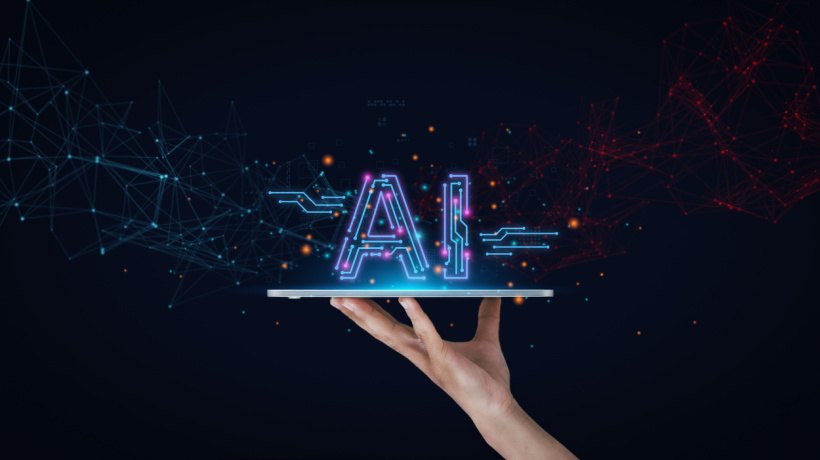As the eCommerce industry enters a new era of competition and consumer expectation in 2025, artificial intelligence (AI) has emerged as an indispensable asset for online businesses. From hyper-personalized shopping experiences to real-time analytics and intelligent automation, AI is revolutionizing how eCommerce platforms attract, convert, and retain customers.
In this article, we explore the top 10 AI tools that can help your eCommerce business increase sales, improve efficiency, and stay ahead of the curve.
Why AI is a Game-Changer for eCommerce Sales in 2025
AI is reshaping the eCommerce landscape by enabling brands to deliver faster, smarter, and more personalized experiences. As consumer behavior becomes more dynamic and expectations rise, AI provides a competitive edge that’s hard to match.
Emerging AI Trends in eCommerce:
- Hyper-personalization: AI tailors content, recommendations, and offers to individual preferences in real-time.
- Conversational commerce: AI-powered chatbots and virtual assistants provide 24/7 support and help guide purchases.
- Predictive behavior analysis: AI anticipates customer needs and actions by analyzing purchase history and browsing data.
- Dynamic pricing optimization: AI adjusts prices in real-time based on demand, competitor pricing, and inventory levels.
- Customer data analysis: AI uncovers insights from large data sets to inform product development, marketing, and operations.
Key Benefits of AI in eCommerce:
- Increased conversion rates: Personalized product suggestions, tailored messaging, and AI-assisted navigation guide users toward purchases.
- Improved customer retention: Predictive engagement and loyalty incentives help brands retain high-value customers.
- Operational efficiency: Automating repetitive tasks, customer service, and inventory management reduces overhead and boosts productivity.
In 2025, businesses that fail to embrace AI risk falling behind in both customer experience and revenue growth.
Top 10 AI Tools Every eCommerce Business Should Consider
Below are the top AI tools that are reshaping how eCommerce businesses operate, market, and grow in 2025:
Shopify Magic

Best for: Shopify-based stores looking to enhance product content and store management.
Shopify Magic uses generative AI to help merchants craft compelling product descriptions, generate email campaigns, and automate store tasks. With built-in AI support, it empowers sellers to create high-converting content with minimal effort.
Key features:
- AI-generated product descriptions
- Email and marketing content creation
- Personalized recommendations
Use case: A mid-size apparel brand uses Shopify Magic to rewrite 1,000+ product descriptions in minutes, improving SEO rankings and click-through rates.
ChatGPT by OpenAI

Best for: Intelligent customer support and automation.
ChatGPT allows eCommerce businesses to build conversational AI bots capable of answering queries, helping with product discovery, and resolving issues in real time. With fine-tuning and integration through API, ChatGPT is a powerful virtual assistant for any online store.
Key features:
- 24/7 automated support
- Natural language understanding
- Integration with platforms like Zendesk, Shopify, and more
Use case: A skincare company uses ChatGPT to handle FAQs and product recommendations, cutting support costs by 40%.
Clerk.io

Best for: Product recommendations and search optimization.
Clerk.io uses behavioral data and AI algorithms to deliver real-time personalized product suggestions, search results, and email marketing content. This tool helps increase average order value and reduce bounce rates.
Key features:
- Intelligent site search
- Recommendation engine
- AI-powered email automation
Use case: An electronics store improves site navigation and sees a 20% lift in product discovery conversions.
Jasper AI

Best for: AI-generated marketing content.
Jasper is a top-rated content generation platform designed to write persuasive copy for eCommerce stores, including product listings, ad copy, blog posts, and more. It supports A/B testing and tone customization.
Key features:
- Product and SEO content creation
- Multilingual support
- Tone and brand voice consistency
Use case: A boutique accessories brand uses Jasper to create Facebook ad copy that doubles ROAS.
Dynamic Yield

Best for: Personalization and experience optimization.
Dynamic Yield provides a unified platform for tailoring eCommerce experiences. It enables segmentation, predictive targeting, and customized journeys that drive higher engagement and conversion rates.
Key features:
- Real-time customer segmentation
- Personalized recommendations
- Dynamic content and offers
Use case: A global fashion retailer increases conversion rate by 28% through targeted homepage personalization.
Tidio AI

Best for: AI-driven customer support and lead generation.
Tidio combines live chat and AI-powered chatbots to offer seamless customer interactions. It’s designed to increase response rates, reduce cart abandonment, and gather valuable customer data.
Key features:
- Automated customer service
- Prebuilt templates and flows
- Integration with CRMs and eCommerce platforms
Use case: A home décor site uses Tidio to recover 15% of abandoned carts with automated messages.
Persado

Best for: AI-powered marketing language optimization.
Persado uses machine learning to analyze emotional engagement and generate language that resonates with target audiences. It helps marketers write high-converting email subject lines, ad copy, and product messaging.
Key features:
- Emotionally intelligent copy
- Data-driven message testing
- Conversion-focused analytics
Use case: A subscription box company sees a 19% increase in email open rates using Persado’s emotional targeting.
Pecan AI

Best for: Predictive analytics and customer insights.
Pecan helps eCommerce companies use predictive modeling without needing a data science team. From forecasting churn to optimizing promotions, it empowers smarter business decisions.
Key features:
- Sales and demand forecasting
- Customer lifetime value prediction
- No-code predictive models
Use case: A health supplements store forecasts high-demand SKUs for Q4, reducing stockouts by 80%.
Rebuy Engine

Best for: Personalized upselling and cross-selling.
Rebuy helps Shopify merchants boost average order values with smart upsells, bundles, and post-purchase offers. Its AI algorithms analyze behavior in real-time to present the right offer at the right moment.
Key features:
- Smart cart and checkout upsells
- Personalized product bundles
- Post-purchase offers
Use case: A pet supply brand uses Rebuy to increase AOV by 22% through personalized checkout suggestions.
Levity AI

Best for: Workflow automation using AI without coding.
Levity allows eCommerce teams to automate processes like tagging customer support tickets, classifying product photos, and filtering feedback using AI. It’s ideal for scaling operations without increasing manual workload.
Key features:
- AI-powered task automation
- Image and text classification
- No-code integrations with existing workflows
Use case: A niche fashion retailer automates photo categorization and saves 10 hours/week on manual tagging.
How to Choose the Right AI Tool for Your Business
Choosing the right AI solution can feel overwhelming with so many options on the market. To make a strategic decision that delivers measurable value, consider the following framework:
Identify Your Primary Business Goals
Before investing in any AI tool, clarify what you want to achieve:
- Do you need to increase conversion rates?
- Are you looking to automate customer support?
- Do you want better customer insights or demand forecasting?
- Is scaling personalized marketing a priority?
Your core objective will determine the category of tools best suited to your needs.
Assess Integration Compatibility
Ensure the AI tool integrates smoothly with your existing tech stack (e.g., Shopify, WooCommerce, Magento, CRM systems, email platforms). Poor integration can hinder adoption and limit ROI.
Evaluate Ease of Use and Scalability
Look for tools with:
- User-friendly dashboards and automation workflows
- Minimal learning curve for your team
- Scalable pricing plans as your business grows
A tool that requires heavy technical resources may slow implementation.
Consider Vendor Support and Community
Strong documentation, responsive customer support, and an active user community can significantly enhance your experience. These resources are vital for troubleshooting and maximizing tool capabilities.
Start Small, Measure Results
Launch a pilot project with one AI tool in a specific area (e.g., chatbots for support or product recommendations). Track KPIs such as:
- Conversion rate uplift
- Revenue per visitor
- Reduction in cart abandonment
- Time saved per task
Use these results to validate the solution before scaling across departments.
Analyze Return on Investment (ROI)
Balance the tool’s cost with the value it brings in saved labor, improved customer experience, and increased sales. Look for platforms that offer free trials or pay-as-you-grow options.
Stay Future-Focused
Select tools that update regularly and align with long-term trends like omnichannel personalization, AI-driven pricing, and predictive analytics.
Final Thoughts
AI eCommerce tools are transforming the industry, helping businesses boost conversions, personalize customer experiences, and streamline operations for long-term success. From AI-driven search engines to fraud detection and marketing automation, these tools enhance efficiency and profitability.
Looking to integrate AI into your eCommerce business? Let 스핑크스 be your trusted partner in AI-powered digital transformation. We help eCommerce brands deploy smarter, faster, and more scalable AI solutions. Connect with Sphinx today to unlock your growth potential.




CEO - Son Le
기타 블로그
블로그
10 Types of Outsourcing: How to Choose the Best One
Outsourcing has become a strategic lever for businesses seeking agility, cost efficiency, and access to specialized expertise. However, not all outsourcing models deliver the same value, and choosing the wrong approach can lead to operational friction, misaligned expectations, and limited returns. From traditional staff augmentation to fully managed services and...
자세히 보기블로그
AI Trends 2026: The Future of Enterprise Intelligence
Artificial Intelligence has moved beyond early adoption and isolated innovation. Today, AI is embedded across enterprise operations, from data analytics and customer engagement to risk management and decision support. However, as AI usage becomes widespread, many organizations are discovering that deploying AI alone does not automatically translate into strategic advantage....
자세히 보기블로그
IT Project Outsourcing for Enterprises: Strategic Best Practices
Enterprise organizations today are under constant pressure to innovate faster and modernize legacy systems, while also scaling technology capabilities without inflating operational costs. In this context, IT project outsourcing has evolved from a tactical cost-saving option into a strategic lever for long-term business growth. In this blog, we outline how...
자세히 보기기타 블로그
서비스
IoT 개발
SphinX는 최첨단 IoT 개발 서비스를 제공하여 디바이스를 원활하게 연결하고 혁신적인 솔루션을 제공합니다.
테마서비스
블록체인 개발
우리는 신뢰할 수 있고 안전한 블록체인 기술을 처음부터 설계하는 데 매우 능숙하며, ...
테마서비스
ERP 및 CRM 개발
필요한 ERP & CRM 개발 서비스! 비즈니스 프로세스 간소화 및 조직 효율성 향상....
테마기타 블로그
서비스
IoT 개발
SphinX는 최첨단 IoT 개발 서비스를 제공하여 디바이스를 원활하게 연결하고 혁신적인 솔루션을 제공합니다.
테마서비스
블록체인 개발
우리는 신뢰할 수 있고 안전한 블록체인 기술을 처음부터 설계하는 데 매우 능숙하며, ...
테마서비스
ERP 및 CRM 개발
필요한 ERP & CRM 개발 서비스! 비즈니스 프로세스 간소화 및 조직 효율성 향상....
테마